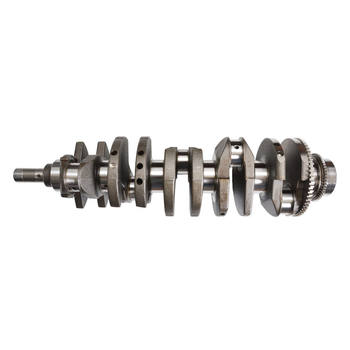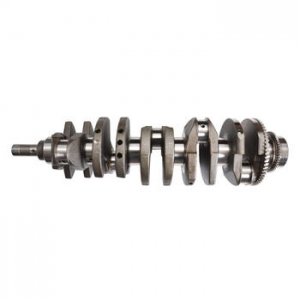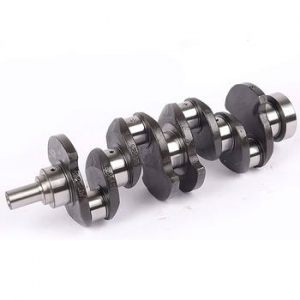Unraveling the Mystery of the Chevy 350 Crankshaft
When it comes to the heart of a classic American engine, the Chevy 350 small block is a legend. Its rugged reliability and adaptable performance have made it a favorite among hot rodders and casual drivers alike. But, have you ever wondered what's inside that engine, specifically the crankshaft? After all, it's the part that transforms the piston's up-and-down motion into rotational force. In this article, we'll explore the stock crankshaft material in a Chevy 350 and discuss whether it can be upgraded.
The Cast Iron Crankshaft: A Workhorse in Disguise
Interestingly enough, the stock crankshaft in a Chevy 350 is made of cast iron. That's right; the same material used in your grandmother's skillet is responsible for propelling this powerful engine. Cast iron offers several benefits, including excellent durability, affordability, and good wear resistance. However, it does have its drawbacks, such as being heavier and less able to handle high RPMs compared to other materials.
Enter Forged Steel: A Performance-Oriented Option
If you're looking to extract more power and performance from your Chevy 350, you might want to consider upgrading the crankshaft material. Forged steel crankshafts are a popular choice for performance applications because they are lighter, stronger, and can handle higher RPMs compared to their cast iron counterparts. As a result, they are better suited for high-horsepower builds and racing applications.
The Benefits of Upgrading to a Forged Steel Crankshaft
So, why should you consider upgrading to a forged steel crankshaft? Here are a few reasons:
Making the Switch: Factors to Consider
Before you rush out and buy a new forged steel crankshaft, there are a few things to consider. First and foremost, assess your engine's intended use. If you're building a daily driver or a mild performance engine, the stock cast iron crankshaft may be more than adequate. However, if you're planning on pushing your engine to the limit, a forged steel crankshaft might be a worthwhile investment.
Additionally, keep in mind that upgrading to a forged steel crankshaft may require other modifications to your engine, such as sturdier rods and bearings. These upgrades can add to the overall cost and complexity of the project.
In the End, It's All About Balance
To sum up, the stock crankshaft material in a Chevy 350 is cast iron, which offers durability and affordability. However, if you're looking to extract more performance from your engine, upgrading to a forged steel crankshaft is an option worth exploring. Just remember to consider your engine's intended use and the potential costs associated with the upgrade. In the end, finding the right balance between performance and practicality is the key to a successful build.
Next Steps: Assessing Your Engine's Needs
Now that you know more about the crankshaft materials in a Chevy 350, it's time to assess your engine's needs. Here are a few questions to consider:
- What are your performance goals?
- How much are you willing to spend on upgrades?
- Are you prepared for potential additional modifications required by a forged steel crankshaft?
By answering these questions, you'll be better equipped to make an informed decision about whether to stick with the stock cast iron crankshaft or upgrade to a forged steel one. Happy building!




